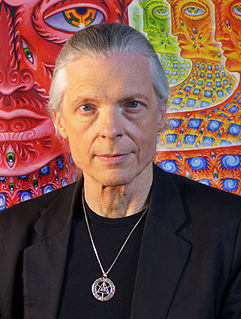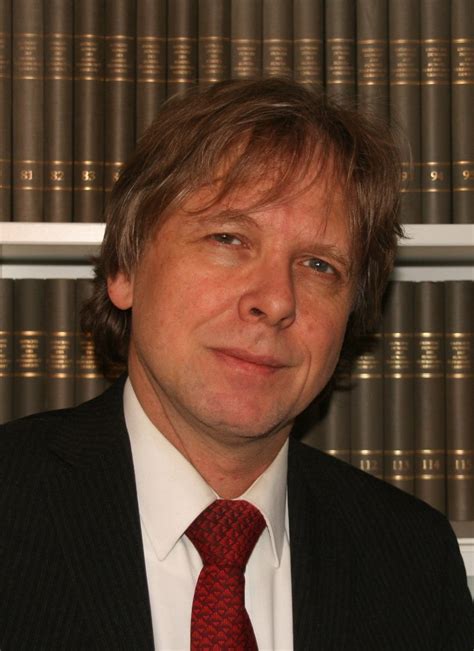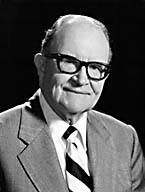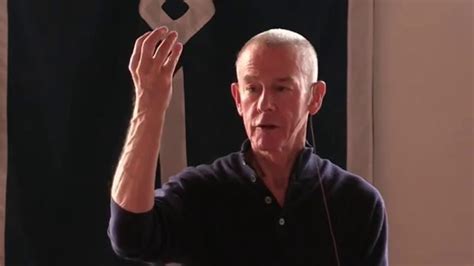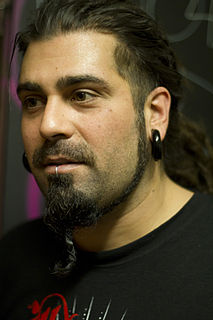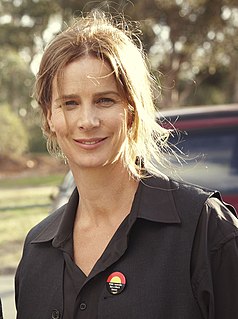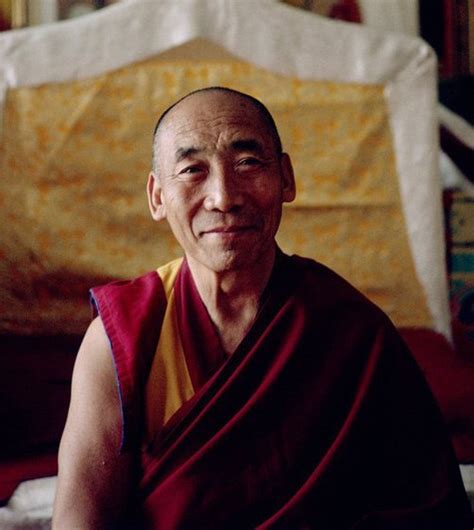Top 898 Inspirational Buddhist Quotes & Sayings - Page 15
Explore popular Inspirational Buddhist quotes.
Last updated on April 15, 2025.
There's great poetry in the Old Testament and the New Testament. And I'm not interested in trying to prove whether this paragraph is as it was or as it should have been or should not be. My pursuit is to find the truth for me in those stories and make them apropos. The important thing is that people wrote them. These were inspirational stories, and you got to see them that way. If you don't, you'll get in trouble. So I'm not going to spend a lot of time trying to find out whether or not Mary was a virgin. What do I care about Mary being a virgin?
My mother really was an extraordinary, inspirational, tough, cool, sexy, funny woman and that's the kind of woman I've always surrounded myself with. It's my friends, particularly my wife, who is not only smarter than and stronger than I am but, occasionally taller too. I think it all goes back to my mother. My father and my stepfather prized whit and resolve in the women they were with above all things. And they were among the rare men who understood that recognising somebody else's power does not diminish your own.
I've always been fond of the idea expressed in Buddhist art, that there are certain objects that, just by seeing them, can plant a seed for liberation in the individual. That class of objects is called "liberation through seeing." Certain Buddha images are like that, but if it were possible, I would like to find contemporary non-traditional sacred images. Maybe it sounds pretentious, but most spiritual paths point to the possibility that we all can access the deep, absolute dimensions of reality.
Whether you believe in God or not does not matter so much, whether you believe in Buddha or not does not matter so much; as a Buddhist, whether you believe in reincarnation or not does not matter so much. You must lead a good life. And a good life does not mean just good food, good clothes, good shelter. These are not sufficient. A good motivation is what is needed: compassion, without dogmatism, without complicated philosophy; just understanding that others are human brothers and sisters and respecting their rights and human dignity.
A wise man once told me- he’s a muslim by the way- that he has more in common with a jew than he does a fanatic of his own religion. He has more in common with a rational, reasonable-minded Christian or a Buddhist or Hindu than he does with a fanatic of his own religion. In fact, he has more in common with a ration, reasonable-minded atheist than he does with a fanatic of his own religion
We are social animals. We like to feel a part of something of beauty and power that transcends our insignificance. It can be a religion, a political party, a ball club. Why not also Nature? I feel a strong identity with the world of living things. I was born into it; we all were. But we may not feel the ties unless we gain intimacy by seeing, feeling, smelling, touching and studying the natural world. Trying to live in harmony with the dictates of nature is probably as inspirational as living in harmony with the Koran or the Bible. Perhaps it is also a timely undertaking.
But the solution to the riddle of life and space and time lies outside space and time. For, as it should be abundantly clear by now, nothing inside a frame can state, or even ask, anything about that frame. The solution, then, is not the finding of an answer to the riddle of existence, but the realization that there is no riddle. This is the essence of the beautiful, almost Zen Buddhist closing sentences of the Tracticus: "For an answer which cannot be expressed the question too cannot be expressed. The riddle does not exist."
I always try to write a song, I never just want to write a record. Originally I was not writing songs for myself. ....And I can say this, most of the people who have recorded my songs are songwriters themselves. ... Even if I don't release it myself, somebody else might hear it and want to record it. When you write a song, it gives it that potential. When you write a song, a song has longevity. ... So I wanted to sing inspirational music, and that's exactly how I approached it-only the words have been changed to declare my relationship with God. Songwriting is my gift from God.
One day Mara, the Buddhist god of ignorance and evil, was traveling through the villages of India with his attendants. He saw a man doing walking meditation whose face was lit up in wonder. The man had just discovered something on the ground in front of him. Mara's attendants asked what that was and Mara replied, "A piece of truth." "Doesn't this bother you when someone finds a piece of the truth, O evil one?" his attendants asked. "No," Mara replied. "Right after this they usually make a belief out of it."
Karma is the record of services. Karma is the term used in Buddhist teaching. Taoists use the term te. Christians us the term "deed." Many other spiritual beings use the term "virtue." Karma, te, deed, and virtue are the same thing but in different words. To understand karma is to understand all of these words.
Man is an onion made up of a hundred integuments, a texture made up of many threads. The ancient Asiatics knew this well enough, and in the Buddhist Yoga an exact technique was devised for unmasking the illusion of the personality. The human merry-go-round sees many changes: the illusion that cost India the efforts of thousands of years to unmask is the same illusion that the West has labored just as hard to maintain and strengthen.
What Grandfather Burton did for me was to write a sacred family record, the small plates of Burton, or, if you will, an inspirational family record. Much of what we now regard as scripture was not anything more or less than men writing of their own spiritual experiences for the benefit of their posterity. These scriptures are family records. Therefore, as a people we ought to write of our own lives and our own experiences to form a sacred record for our descendants. We must provide for them the same uplifting, faith-promoting strength that the ancient scriptures now give us.
You can call it tathata, suchness. 'Suchness' is a Buddhist way of expressing that there is something in you which always remains in its intrinsic nature, never changing. It always remains in its selfsame essence, eternally so. That is your real nature. That which changes is not you, that is mind. That which does not change in you is buddha-mind. You can call it no-mind, you can call it samadhi, satori. It depends upon you; you can give it whatsoever name you want. You can call it christ-consciousness.
The question has often been asked; Is Buddhism a religion or a philosophy? It does not matter what you call it. Buddhism remains what it is whatever label you may put on it. The label is immaterial. Even the label 'Buddhism' which we give to the teachings of the Buddha is of little importance. The name one gives is inessential.... In the same way Truth needs no label: it is neither Buddhist, Christian, Hindu nor Moslem. It is not the monopoly of anybody. Sectarian labels are a hindrance to the independent understanding of Truth, and they produce harmful prejudices in men's minds.
Scientific discovery is a private event, and the delight that accompanies it, or the despair of finding it illusory, does not travel. One scientist may get great satisfaction from another's work and admire it deeply; it may give him great intellectual pleasure; but it gives him no sense of participation in the discovery, it does not carry him away, and his appreciation of it does not depend on his being carried away. If it were otherwise the inspirational origin of scientific discovery would never have been in doubt.
Dharma is not about credentials. It's not about how many practices you've done, or how peaceful you can make your mind. It's not about being in a community where you feel safe or enjoying the cachet of being a 'Buddhist.' It's not even about accumulating teachings, empowerments, or 'spiritual accomplishments.' It's about how naked you're willing to be with your own life, and how much you're willing to let go of your masks and your armor and live as a completely exposed, undefended, and open human person.
I get inspired with passion, I think. I get inspired by people who are just passionate, and it doesn't matter what they do or what they're passionate about. I just think passion is such an embraceable thing, whether it's the guy in the coffee shop who's making the coffee or a bricklayer who loves making walls. I love watching people who love what they do, and I think that's very inspirational.
Buddhist words such as compassion and emptiness don't mean much until we start cultivating our innate ability simply to be there with pain with an open heart and the willingness not to instantly try to get ground under our feet. For instance, if what we're feeling is rage, we usually assume that there are only two ways to relate to it. One is to blame others. Lay it all on somebody else; drive all blames into everyone else. The other alternative is to feel guilty about our rage and blame ourselves.
Taoist chanting, Confucian chanting, Christian chanting, Buddhist chanting don't matter. Chanting Coca Cola, Coca Cola, Coca Cola … can be just as good if you keep a clear mind. But if you don't keep a clear mind, and are only following your thinking as you mouth the words, even the Buddha cannot help you.
What God is doing today is calling people out of the world for His name. Whether they come from the Muslim world, or the Buddhist world, or the Christian world, or the non-believing world, they are members of the body of Christ because they've been called by God. They may not even know the name of Jesus, but they know in their hearts they need something that they don't have and they turn to the only light they have and I think they're saved and they're going to be with us in heaven.
I think it would help if, when people are first ordained, they underwent a period of strict training, maybe for several years. During this time they would learn basic Buddhist philosophy in a monastic community where all the teaching and training was directed toward living a perfect monastic life and wasn't channeled out to fit into the lay life - which is what usually happens in Dharma centers where the teachings are directed toward how to live the Dharma in your everyday life.
They have no business administering government policies in a country that favors freedom and equality. ... Can you imagine having the Ayatollah Ruhollah Khomeini as defense minister, or Mahatma Gandhi as minister of health, education, and welfare The Hindu and Buddhist idea of karma and the Muslim idea of kismet, or fate condemn the poor and the disabled to their suffering. ... It's the will of Allah. These beliefs are nothing but abject fatalism, and they would devastate the social gains this nation has made if they were ever put into practice.
"Moksha" is really a satire of myself. I've always been interested in Eastern spirituality. I'm particularly interested in enlightenment and the spiritual pursuit to liberate ourselves (I'm a Buddhist at heart). During my teenage years, I imagined I'd end up going to India to become a yogi; study with the last living saints in a cave; give up all my worldly possessions; learn to levitate. And there's still part of me that can see myself "disappearing" for some years at an ashram somewhere.
I think it's more, at least at the time, a sense of abstraction. My mind doesn't really work in a way where there's a definitive sense of something. I go one way and then it opens up into a million different ideas, and somehow, when you look at the art, Buddhist art, or particularly Tibetan art, you know, it's a similar thing. All of a sudden there are a million lotus leaves and you're following one to the next and to another, and I related to that, and it felt simple and easy to me. And it made me feel smart.
I'm working at trying to be a Christian and that's serious business. It's like trying to be a good Jew, a good Muslim, a good Buddhist, a good Shintoist, a good Zoroastrian, a good friend, a good lover, a good mother, a good buddy?it's serious business. It's not something where you think, Oh, I've got it done. I did it all day, hotdiggety. The truth is, all day long you try to do it, try to be it, and then in the evening if you're honest and have a little courage you look at yourself and say, Hmm. I only blew it eighty-six times. Not bad.
The Bible represents a fundamental guidepost for millions of people on the planet, in much the same way the Koran, Torah, and Pali Canon offer guidance to people of other religions. If you and I could dig up documentation that contradicted the holy stories of Islamic belief, Judaic belief, Buddhist belief, pagan belief, should we do that? Should we wave a flag and tell the Buddhists that the Buddha did not come from a lotus blossom? Or that Jesus was not born of a literal virgin birth? Those who truly understand their faiths understand the stories are metaphorical.
Only Zorbas become Buddhas - and Buddha was never a monk, A monk is one who has never been a Zorba and has become enchanted by the words of Buddhas. A monk is an imitator, he is false, pseudo. He imitates Buddhas. He may be Christian, he may be Buddhist, he may be a Hindu - that doesn't make much difference - but he imitates Buddhas.
Human beings by nature want happiness and do not want suffering. With that
feeling everyone tries to achieve happiness and tries to get rid of suffering, and everyone has the basic right to do this. In this way, all here are the same, whether rich or poor, educated or uneducated, Easterner or Westerner, believer or non-believer, and within believers whether Buddhist, Christian, Jewish, Muslim, and so on. Basically, from the viewpoint of real human value we are all the same.
There is more than one way to burn a book. And the world is full of people running about with lit matches. Every minority, be it Baptist/Unitarian, Irish/Italian/Octogenarian/Zen Buddhist, Zionist/Seventh-day Adventist, Women's Lib/Republican, Mattachine/FourSquareGospel feels it has the will, the right, the duty to douse the kerosene, light the fuse. Every dimwit editor who sees himself as the source of all dreary blanc-mange plain porridge unleavened literature, licks his guillotine and eyes the neck of any author who dares to speak above a whisper or write above a nursery rhyme.
It is neither just the religious, the spiritual, the power-hungry, the evil, the ignorant, the corrupt, the Christian, the Muslim, the Hindu, the Buddhist, the Jew, nor the atheist that makes a hypocrite, but being a human being. Any man who thinks himself to be free of hypocrisy while committed to cherry-picking others for such, I am confident, the Almighty can prove to him a great deal of his own hypocrisy even beyond his earthly comprehension.
Finally, I would like to assure my many Buddhist, Christian, Hindu, Jewish, and Muslim friends that I am sincerely happy that the religion which Chance has given you has contributed to your peace of mind (and often, as Western medical science now reluctantly admits, to your physical well-being). Perhaps it is better to be un-sane and happy, than sane and un-happy. But it is the best of all to be sane and happy. Whether our descendants can achieve that goal will be the greatest challenge of the future. Indeed, it may well decide whether we have any future.
As a Buddhist, I view death as a normal process, a reality that I accept will occur as long as I remain in this earthly existence. Knowing that I cannot escape it, I see no point in worrying about it. I tend to think of death as being like changing your clothes when they are old and worn out, rather than as some final end. Yet death is unpredictable: We do not know when or how it will take place. So it is only sensible to take certain precautions before it actually happens.
Love is the capacity to take care, to protect, to nourish. If you are not capable of generatng that kind of energy toward yourself - if you are not capable of taking care of yourself, of nourishing yourself, of protecting yourself - it is very difficult to take care of another person. In the Buddhist teaching, it's clear that to love oneself is the foundation of the love of other people. Love is a practice. Love is truly a practice.
Place no hope in the feeling of assurance, in spiritual comfort. You may well have to get along without this. Place no hope in the inspirational preachers of Christian sunshine, who are able to pick you up and set you back on your feet and make you feel good for three or four days-until you fold up and collapse into despair. Self-confidence is a precious natural gift, a sign of health. But it is not the same thing as faith. Faith is much deeper, and it must be deep enough to subsist when we are weak, when we are sick, when our self-confidence is gone, when our self-respect is gone.
While the primary function of formal Buddhist meditation is to create the possibility of the experience of "being," my work as a therapist has shown me that the demands of intimate life can be just as useful as meditation in moving people toward this capacity. Just as in formal meditation, intimate relationships teach us that the more we relate to each other as objects, the greater our disappointment. The trick, as in meditation, is to use this disappointment to change the way we relate.
I think East Asian countries, I think they're very fortunate to have Buddhism survive as a strong influence because right from the time when Buddha himself, 2,500 years ago, made the point about the importance of education, and the word "Buddha" also means enlighten[ed] or educated. So all the Buddhist countries, not only Japan and Korea and China and Hong Kong and Thailand but also even Burma and Sri Lanka, had a higher level of education.
The way of presentation is different according to each religion. In theistic religions like Buddhism, Buddhist values are incorporated. In nontheistic religions, like some types of ancient Indian thought, the law of karma applies. If you do something good, you get a good result. Now, what we need is a way to educate nonbelievers. These nonbelievers may be critical of all religions, but they should be decent at heart.
Not Christian or Jew or Muslim, not Hindu, Buddhist, sufi, or zen. Not any religion or cultural system. I am not from the East or the West, not out of the ocean or up from the ground, not natural or ethereal, not composed of elements at all. I do not exist, am not an entity in this world or the next, did not descend from Adam or Eve or any origin story. My place is placeless, a trace of the traceless. Neither body or soul. I belong to the beloved, have seen the two worlds as one and that one call to and know, first, last, outer, inner, only that breath breathing human being.
I couldn't tell how many times I've been to Japan off the top of my head, I just have a few standout moments that were very defining and inspirational at different parts of my life. As far as moving there, I don't know. That's a tall order there. I feel there's people that go so far as to do that, and good for them, but I just can't. For me it's not a misplaced passion or a weird infatuation - it's more like I've just had a good chance to realize how immensely their art has affected our American culture, and I don't take it for granted. I've got a very big appreciation.
I'm not [a Buddhist]. The whole point of anything that is really, truly valuable to your soul, and your own growth, is not to attach to a teacher, but rather to find out what the real deal is in the world itself. You become your own guide. The teachings can help you, but really, we're all here with the opportunity the reality of hereness. We all have that. I trust that...I'm just not interested in labels. I find all of them constrictive. They're hard to wear. And they're hard to wear because we're always - hopefully - growing.
Although I'm not Christian, I was raised Christian. I'm an atheist, with a slight Buddhist leaning. I've got a very strong sense of morality - it's just a different morality than the loud voices of the Christian morality.... I can't tell you how many films I've turned down because there was an absence of morality. And I don't mean that from any sort of Judeo-Christian-Muslim point of view. I'm not saying they're wrong and can't be made. But, fundamentally, I'm such a humanist that I can't bear to make films that make us feel humanity is more dark than it is light.
From a Buddhist point of view, the actual experience of death is very important. Although how or where we will be reborn is generally dependent on karmic forces, our state of mind at the time of death can influence the quality of our next rebirth. So at the moment of death, in spite of the great variety of karmas we have accumulated, if we make a special effort to generate a virtuous state of mind, we may strengthen and activate a virtuous karma, and so bring about a happy rebirth.
As a book person and a movie person, I feel Jewish. My Dad was more Buddhist than anything, and on the West Coast I've often had the impression that Jews become Buddhists. I think, if anything, my religion has more to do with California consciousness, vibrations and energy. My wife isn't Jewish. There's nothing ceremonial going on at our house, I mean, occasionally a candle gets lit. But, definitely, my Judaism is an ongoing relationship, one that remains to be consummated.
The perfection of joyful determination is defined as taking delight or feeling joy in doing something positive or virtuous. If you are very joyful about doing negative things or about being busy with meaningless activities, this is not called joyful exertion from a Buddhist point of view. This kind of attitude is actually a form of laziness, an attachment to frivolous activities. Such a person would not be considered diligent at all. But if you are JOYFUL and DETERMINED TO PERFORM POSITIVE ACTIONS, then as a result, you discover and learn many new things that you didn't know about before.
I think there's some pretty amazing language in the Bible. The thing that's always been interesting to me about religion is that compared to the more modern spirituality, the West Coast pseudo-Buddhist thing that people go for these days, actual Buddhism and Islam have been looking at these philosophical questions, at really hard questions, for a long time. There's a lot of stuff that philosophy doesn't talk about, and in the secular world, a lot of times, people don't talk about these ideas, and that was always really interesting for me.
We cannot avoid the globalization of knowledge and information. When I was a boy growing up in Kansas, I could never think about a Buddhist, or a Hindu, or Muslim, or even a Protestant - I grew up in such a Catholic ghetto. That's not possible anymore, unless you live in a cave or something. So either we have knowledge of what the other religions and other denominations are saying, and how they tie into the common thread, or we end up just being dangerously ignorant of other people and therefore prejudiced.
In Buddhist ideology, the conventional self is that which is constructed in a way by the use of the pronoun, and when you realize there is no absolute ego there, no disconnected one, self, or ego, then that actually strengthens your conventional ego. It does so in the sense that then you realize it's a construction, and you can strengthen it in order to help others, or do whatever you're trying to do, it's not like you no longer know who you are. Then you can organize your behavior by using your ego, as it's now the pronoun.
I think what happens in a religious life is that we have those experiences of affirmation and that one starts to live a Christian life or a Jewish life or a Muslim life or a Buddhist life, by affirming that affirmation each day. Each day you say 'Yes' to that Yes. So the life of being a Christian for example, is always a life of double affirmation, that you each day say 'Yes' to those counter-experiences of saying 'Yes', even when you're not experiencing them at that time, you're remaining loyal to that experience.
Although you can find certain differences among the Buddhist philosophical schools about how the universe came into being, the basic common question addressed is how the two fundamental principles-external matter and internal mind or consciousness-although distinct, affect one another. External causes and conditions are responsible for certain of our experiences of happiness and suffering. Yet we find that it is principally our own feelings, our thoughts and our emotions, that really determine whether we are going to suffer or be happy.
Franz Kafka once said that happiness consists in having an ideal and not progressing towards it. If you did progress towards it, you'd be unhappy because you'd never be able to reach it. You can incrementally improve your life, but you never quite experience the glamour. You never quite get to your utopia, or whatever it is. And once you realize that you can be quite Buddhist about it, and say, "Well, okay, I'm just going to keep detached from it all."
A person without an Apple watch is perfectly content with his present watch but when he sees his friends buying the watch, he will hanker for an Apple watch. The endless cycle of wanting, getting, and wanting again is part of the plot of Capitalism. It is the way Capitalism creates jobs. The only antidote is Buddhism that holds that people might be happier by renouncing desire rather than by striving to satisfy desire. But then how can the economy create enough jobs in a Buddhist society of "less is more."
We need a sense of the oneness of the 7 billion human beings alive today. When I meet people, I don't think about being different from them, about being Tibetan, Buddhist or even the Dalai Lama. I only think about being a human being. We all share the potential for positive and negative emotions, yet one of our special qualities is our human mind, our intelligence. If we use it well we'll be successful and happy.
It's important for me to say something, and with wisdom if I can. I don't think there's anything wrong with just going out there and having fun and goofing around. I want to experiment with that too. But yeah, I feel like I have a responsibility to produce something hopeful, and maybe inspirational to people. When people come up to be and tell me how my music has changed their lives, that only encourages me to take it more seriously. Sometimes I get annoyed with myself for getting too serious, but that's just what I need to do.
You can keep your own religion - Buddhism, Islam, Hinduism, Mormonism - you just need to add Jesus to the equation. Then you become complete. You become a Buddhist with Jesus, a Hindu with Jesus, a Muslim with Jesus and so on. You can throw out the term Christianity and still be a follower of Jesus. In fact, you can throw out the term Christian too. In some countries, you could be persecuted for calling yourself a Christian, and there is no need for that. Just ask Jesus into your heart, you don't have to identify yourself as a Christian.


